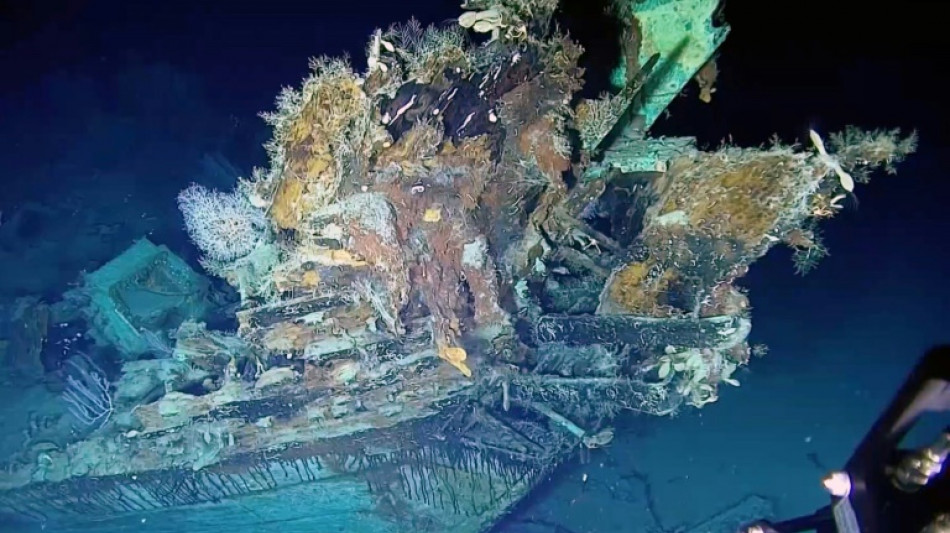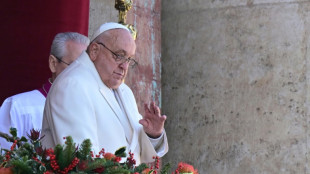

Colombia shares unprecedented images of treasure-laden wreck
Colombia's army has shared unprecedented images of the legendary San Jose galleon shipwreck, hidden underwater for three centuries and believed to have been carrying riches worth billions of dollars in today's money.
Four observation missions using a remotely operated vehicle were sent to the wreck at a depth of almost 950 meters (3,100 feet) off Colombia's Caribbean coast, the army said in a statement late Monday.
These missions, carried out by the navy under the supervision of the culture ministry, found the galleon untouched by "human intervention."
Cannons partially covered by mud are visible alongside porcelain crockery, pottery, glass bottles and also gold pieces.
A part of the bow can be clearly seen covered in algae and shellfish, as well as the remains of the frame of the hull.
Authorities said they had also discovered two more shipwrecks during their observation mission -- a colonial-era galleon and a schooner from the post-colonial period.
"Thanks to the technological equipment and the Colombian navy's work, we managed to capture images with a level of precision that's never been seen before," said President Ivan Duque.
He said the wreck was "kept intact and protected with a view towards a future retrieval."
When that happens, though, Colombia will face a challenge from Spain and an indigenous group in Bolivia to determine who keeps the bounty.
- Lost for 300 years -
The San Jose galleon was owned by the Spanish crown when it was sunk by the British navy near Cartagena in 1708.
Only a handful of its 600-strong crew survived.
It was heading back from the New World to the court of King Philip V of Spain.
At the time, it was laden with treasures estimated to be worth billions of dollars at current rates.
Before its discovery in 2015, it was long sought after by treasure hunters.
Experts believe it contains at least 200 tons of gold, silver and emeralds.
Colombia considers wrecks found in its territorial waters to be part of its cultural heritage, meaning the contents cannot be sold.
Spain insists that the bounty is theirs since it was aboard a Spanish ship, while Bolivia's Qhara Qhara nation says it should get the treasures as the Spanish forced the community's people to mine the precious metals.
When the wreck was discovered, then Colombian president Juan Manuel Santos lauded it as "the most precious treasure ever found in the history of the world."
He had proposed to finance the recovery mission with the proceeds from selling part of the find, but Duque put a stop to that to ensure the entirety of the wreck would remain in Colombia.
Colombian authorities have announced their intention to create a museum of shipwrecks that would be "a source of pride for Colombia, the Caribbean and the world."
Recovering the wreck presents a technological and scientific challenge due to its depth.
Authorities have identified another 13 sites off the coast of Cartagena that they want to explore in search of other shipwrecks.
(A.Laurent--LPdF)




